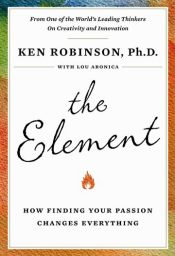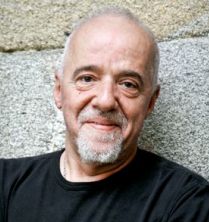If you were a student who found studying Science, Maths or English a painful experience or you never could quite “get” these subjects, don’t feel bad or think you’re stupid.
According to creativity expert Sir Ken Robinson – it’s not your fault.
The school system failed you.
 In his book, “The Element”, Robinson argues that the school system is broken. It has succeeded in educating many people out of their creativity and producing a clear set of “winners” and “losers”.
In his book, “The Element”, Robinson argues that the school system is broken. It has succeeded in educating many people out of their creativity and producing a clear set of “winners” and “losers”.
The “winners” are the academic students who end up becoming university professors.
The “losers” are the students who are talented and creative but think they’re not. Why? Because what they’re good at was never recognised or valued in school.
As it turns out many wildly successful people, such as artists Chuck Close and George Harrison, struggled at school. Robinson states –
“Some of the most brilliant, creative people I know did not do well at school. Many of them didn’t really discover what they could do—and who they really were—until they’d left school and recovered from their education”.
Robinson makes the case that the modern day school system values certain subjects such as maths and languages more than creative areas such as music, dance and art.
This in turn shapes how we perceive intelligence – being good at maths and literacy. With such a narrow view of intelligence it’s no wonder that so many students think that they’re stupid.
A large part of the book focuses on the importance of finding your element (i.e. what you love doing and what you’re good at).
How can you possibly know when you’ve found your element?
A good sign is “complete absorption in an activity…concentration on the task at hand that allows one to forget everything else” Robinson states. The activity should be intrinsically rewarding and give you an incredible amount of energy.
He encourages us to take risks and step out of our comfort zones, find our element and pursue it. He also offers some practical advice on how to go about doing this and what to expect. In a nutshell –
• Find your tribe – Surround yourself with people who love what you love. This can help to provide inspiration, support and feedback.
• Get a mentor – In searching for your element it helps to have the guidance of a mentor. Mentors can give us advice and techniques, push us past what we see as our limits, don’t allow us to succumb to self-doubt and encourage us to make the most of our capacities. Most importantly “they open our eyes to new possibilities and fire our aspirations”.
• Be prepared for some backlash – When you choose to do what you love, as opposed to settling for a socially acceptable job, don’t expect everyone to be overjoyed and completely supportive. There will be people in your family and circle of friends who don’t approve. Ignore them.
 Robinson tells the story of Paulo Coelho (author of the International bestseller The Alchemist). As a young man Paulo’s parents wanted him to practice Law however Paulo had a deep desire to be a writer. Unfortunately, his parents couldn’t accept this. In an act of desperation, they put Paulo in a psychiatric institution where he received electroshock treatment. All in the name of love.
Robinson tells the story of Paulo Coelho (author of the International bestseller The Alchemist). As a young man Paulo’s parents wanted him to practice Law however Paulo had a deep desire to be a writer. Unfortunately, his parents couldn’t accept this. In an act of desperation, they put Paulo in a psychiatric institution where he received electroshock treatment. All in the name of love.
Chances are you won’t have to face a straight jacket and a padded room but prepare yourself for people who may try to clip your wings.
The most powerful part of the book for me was the afterword. Ken Robinson warns readers that on our journey to find what we love doing we must recognise that we live in a fragile ecosystem that has limits. Whatever we do to the planet ultimately impacts on our quality of life and wellbeing.
In the last few decades, humans have accomplished some amazing things – a man on the moon, the internet, iPads, 3D televisions, etc. Yet despite these achievements, many of us aren’t satisfied and are driven to create more and more.
“But there is a danger now that our imaginations may be failing us. We have seen far, but not far enough. We still think too narrowly and too closely about ourselves as individuals and as a species and too little about the consequences of our actions” he states.
After reading this book what I am left with is the importance of pursuing what you love without jeopardising the planet such that our children have the opportunity to do the same.
References
Robinson, Ken & Aronica, Lou. (2009). The Element: How Finding Your Passion Changes Everything. Penguin Books: London, England.
Ted Talk – Ken Robinson says Schools Kill Creativity
